Growing demand for technology has increased the number of online tools, and frameworks for web development. Flask and Django are the most popular Python web frameworks. They have features that are useful for different types of projects. Therefore, when choosing from the options, the right framework choice will not merely depend on its features.
Selecting a framework involves much more than comparing features. The decision requires balancing the framework against the project’s vision, team skills, and future scalability requirements.
Let’s discuss some differences between Flask and Django in this blog to help you figure out which one will meet your requirements:
What Is Flask?
Flask is a lightweight, micro-framework for Python focusing on simplicity and flexibility. Its minimalist design allows developers to start building applications quickly. Unlike full-stack frameworks, Flask offers only the core essentials, enabling developers to integrate additional components as needed.
This minimalistic approach appeals to developers seeking granular control over their projects. Flask is particularly well-suited for prototyping or building lightweight applications where agility and speed are paramount. It provides freedom to craft solutions without imposing rigid structures or specific tools.
Key Features of Flask include:
- Lightweight Architecture: Ensures minimal overhead and avoids unnecessary bulk.
- High Customizability: Allows developers to tailor the framework to precise requirements.
- Simplicity: Offers an intuitive learning curve, making it accessible for newcomers.
What Is Django?
Django is a robust, full-stack Python web framework that is famous for its “batteries-included” philosophy. It has built-in solutions for database management and user authentication, which reduce the complexity of development and ensure high levels of security, scalability, and performance.
Django is often preferred for large-scale projects or applications that require rapid development due to its comprehensive feature set. Ensuring the projects are well-organized from the very beginning follows the Model-View-Controller architecture. Django is an excellent choice for developers who value a framework that handles heavy lifting.
Key features of Django include:
- Inbuilt Features: Expedite development by addressing common requirements out of the box.
- Enhanced Security: Offers built-in protection against common vulnerabilities.
- Scalability: Ideal for projects expecting significant growth and complexity.
Flask vs. Django: 3 Key Considerations
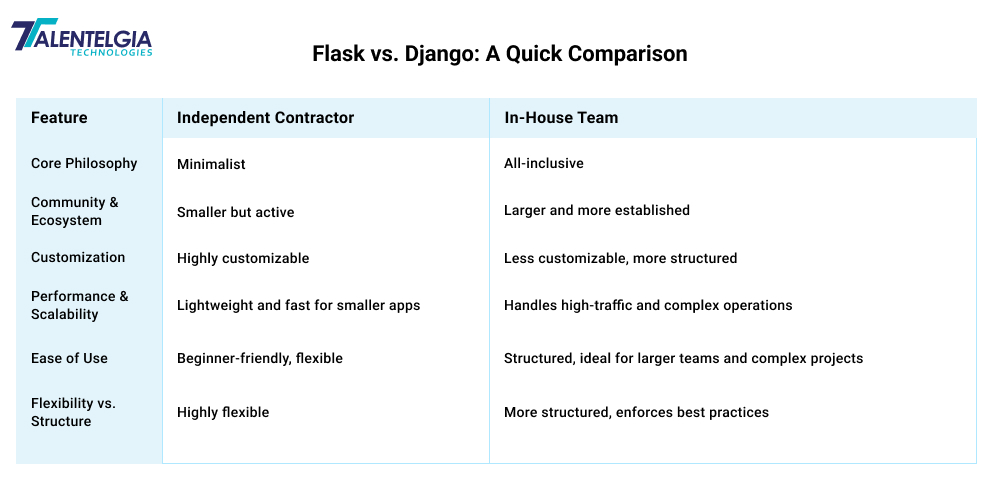
Flask and Django have significant differences in approach and capabilities. Both serve the specific needs of the developers. Flask emphasizes flexibility and ease, whereas Django offers an ordered environment with features that are apt for complex applications. Therefore, if you, too, are struggling to determine which Python framework best serves your web development project, then you must understand your needs so that you can make a correct decision. Furthermore, consider the below three factors to make the right choice:
Also Read: Web Development Process
Performance and Scalability
Performance is a critical factor when selecting a framework, and Flask and Django address it differently based on their design philosophies.
- Flask: Optimized for smaller applications, Flask is lightweight and faster to deploy. However, as the application scales, additional tools must be integrated to maintain performance.
- Django: Although slightly heavier due to its extensive features, Django efficiently manages high traffic and complex operations.
For smaller to medium-sized projects, Flask delivers responsiveness. For larger, more intricate applications, Django’s scalability becomes a decisive advantage.
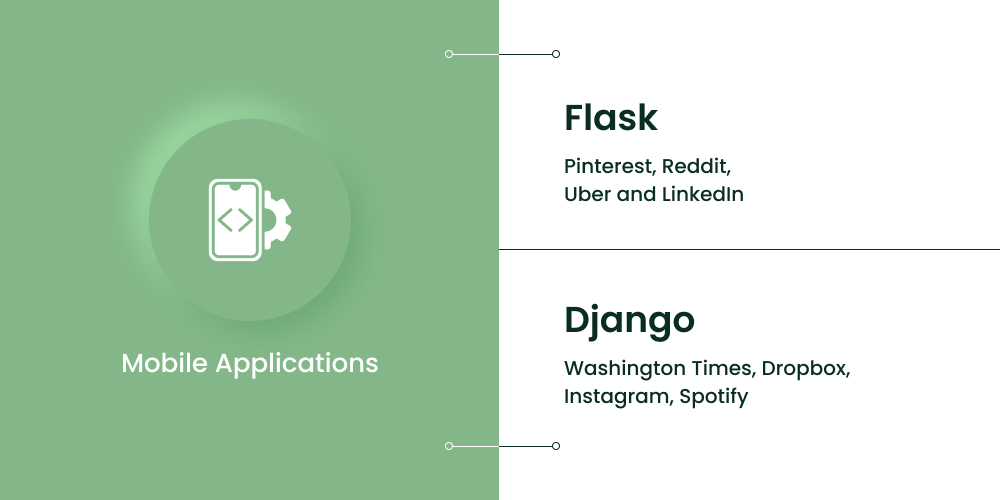
Ease of Use
Both frameworks ensure promising results. However, they are also accessible for beginners. This makes them ideal for businesses of all levels and sizes. Their approaches differ:
- Flask: Its simplicity and flexibility make it beginner-friendly, avoiding feature overload and enabling rapid learning.
- Django: Its predefined structure and tools may feel restrictive but are invaluable for complex projects and larger teams.
Flask fosters experimentation, while Django’s structure minimizes common errors and enforces best practices.
Flexibility vs. Structure
Flexibility gives freedom to make changes in the long run. However, sometimes a structured approach simplifies the process and makes things easier. So be careful while making the right choice.
- Flask: It offers unparalleled flexibility, giving developers the freedom to select libraries, extensions, and architecture.
- Django: Compensates for its rigidity with a structured environment that enforces best practices. Teams valuing consistency and reliability benefit greatly from Django’s methodology.
Key Differences Between Flask and Django
Flask and Django are two different tools with different purposes. Their differences are not only on the surface but also in their usage. Each framework caters to specific needs and workflows. Flask is flexible and simple, while Django focuses on providing a robust and ready-to-use solution for complex applications.
Core Philosophy
When deciding the right Python framework for your project – understanding their core philosophies is also imperative. This will give you an insight into what you can expect from each of these:
- Flask: Adopts a minimalist approach, leaving the library and tool selection to developers. This is perfect for those who prefer building projects from the ground up.
- Django: It embraces an all-inclusive philosophy. This offers tools for tasks such as database management and form validation.
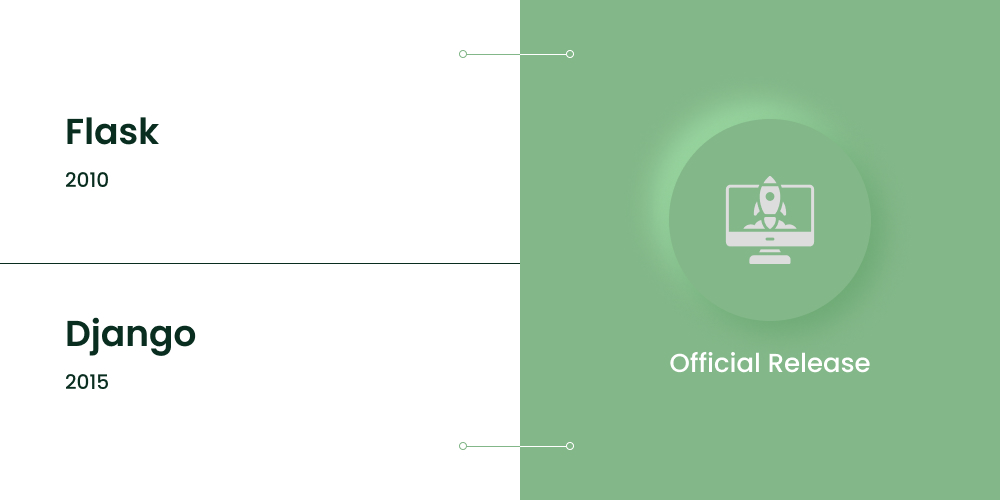
Community and Ecosystem
Both frameworks boast active communities. However, Django’s longer tenure and wider adoption ensure a more extensive ecosystem with extensive documentation and third-party packages. Flask’s ecosystem, though smaller, is robust and enriched with diverse extensions.
This means when considering the reliability of the community, both these frameworks make the right choice. They will simplify your development work with their resources and communities
Customization
While Flask is more flexible for changes, the structured approach of Django helps to avoid common mistakes, especially in larger teams. Customization marks a significant distinction between the two frameworks:
- Flask: Excels in providing developers with absolute freedom to customize applications.
- Django: While customizable to a degree, it encourages adherence to its structure and conventions.
Flask is the right choice if you are looking for customization capabilities.
Flexibility in Deployment
The most critical phase of any project is always the deployment. The amount of flexibility that a framework allows in deployment may determine how easy it will be for you to set up and maintain your application. Knowing how Flask and Django can help you deploy an application will, therefore, enable you to determine which one aligns best with your needs.
- Flask: Quite flexible in deployment and gives developers very little restriction on setting up their preferred configuration.
- Django: While a bit stiffer, Django makes deployment for common setups easy with tools built into it and best practices defined.
Flask offers control over every detail of deployment, whereas Django offers simplicity for traditional setups.
Database Support
Every application needs a trustworthy database, and the framework you choose should suit your needs in database management. Flask and Django differ in their approach to integrating and supporting databases.
- Flask: It leaves the choice of the database and ORM tools to the developer and allows free choice to integrate any database solution.
- Django: Provides built-in support to work with multiple databases and can do so with the robust ORM. This makes any task involving database operations much simpler.
Flask is much easier, and one can freely choose their database but the in-built tools and predetermined structure of Django make its ORM a great advantage.
Admin Interface
This would help the admin interface in making easier the tasks of managing applications from user data to content management. The availability and features of the admin interface are very important when choosing a framework.
- Flask: No in-built admin interface is available. Developers have to create or integrate one using third-party extensions.
- Django: It comes with a robust, customizable admin panel, which makes administrative tasks much easier.
Django is the clear winner for projects that benefit from an out-of-the-box admin interface, while Flask offers flexibility for custom solutions.
Asynchronous Support
Asynchronous programming has become increasingly important for modern applications, allowing developers to handle multiple tasks simultaneously and improve performance. This section delves into how Flask and Django support asynchronous programming.
- Flask: Supports asynchronous programming with newer versions of Python, though it requires external libraries for advanced features.
- Django: It has introduced native asynchronous support in the latest upgrades, but it is yet to completely embrace asynchronous functionality.
In terms of asynchronous support for developers looking for cutting-edge possibilities, Flask provides immediate flexibility, while Django is slowly closing the gap.
Third-Party Integrations
While third-party integration is required to expand the application’s scope, both Flask and Django represent different philosophies. These differences are well-reflected in their approach to fulfilling integration requirements.
- Flask: It is minimalist and flexible, so third-party libraries and tools can be easily integrated.
- Django: It supports third-party integrations but encourages the use of built-in solutions where possible, which might limit choices.
Flask is ideal for highly modular projects because it is open to third-party tools. Django is more suited for projects where built-in solutions will suffice.
When Should You Use Flask?
Flask is a perfect choice for projects where simplicity, control, and speed are a priority. Since it provides only the core essentials, Flask allows developers to build their applications step by step, integrating tools and features as needed. This makes it highly adaptable to unique project requirements.
1.Small Applications: Since Flask does not require much in terms of features for simple projects, you can deliver it in no time.
2. Prototyping: Whenever you are testing an idea or building a proof of concept, you need a lightweight. A flask is the best way to go about it.
3. Custom Applications: This means you can design and build without any restrictions with Flask.
4. APIs: It’s a popular choice for creating RESTful APIs, thanks to its simplicity and flexibility.
When Should You Use Django?
Django is the go-to framework for large, complex projects that require robust functionality t. It’s designed for web solutions that require built-in tools with the ability to handle everything from database connections to form handling.
Django is ideal for:
1.Big projects: If your application requires serving many users and features, Django’s scalability becomes a huge advantage.
2. Rapid Development: Need to launch your project quickly? Django’s built-in tools can save you weeks of development time.
3. E-commerce platforms: Django simplifies the management of products, users, and transactions due to its integrated features.
4. High-Security Applications: Projects handling sensitive user data can benefit from Django’s advanced security features.
Conclusion
Although both frameworks help you develop web apps, choose Flask if your project needs a light, flexible, and fast framework for smaller projects, prototypes, and APIs. Django is a high-end framework supporting the best features and built-in tools of a framework. It can be used to develop large-scale applications that promise security and scalability.
Review your project requirements, team expertise, and long-term goals before making the right choice. Both frameworks can be quite powerful for helping with your development journey. The right choices will make your application efficient, scalable, and proper for the targeted audience.


 Healthcare App Development Services
Healthcare App Development Services
 Real Estate Web Development Services
Real Estate Web Development Services
 E-Commerce App Development Services
E-Commerce App Development Services E-Commerce Web Development Services
E-Commerce Web Development Services Blockchain E-commerce Development Company
Blockchain E-commerce Development Company
 Fintech App Development Services
Fintech App Development Services Fintech Web Development
Fintech Web Development Blockchain Fintech Development Company
Blockchain Fintech Development Company
 E-Learning App Development Services
E-Learning App Development Services
 Restaurant App Development Company
Restaurant App Development Company
 Mobile Game Development Company
Mobile Game Development Company
 Travel App Development Company
Travel App Development Company
 Automotive Web Design
Automotive Web Design
 AI Traffic Management System
AI Traffic Management System
 AI Inventory Management Software
AI Inventory Management Software
 AI Software Development
AI Software Development  AI Development Company
AI Development Company  AI App Development Services
AI App Development Services  ChatGPT integration services
ChatGPT integration services  AI Integration Services
AI Integration Services  Generative AI Development Services
Generative AI Development Services  Natural Language Processing Company
Natural Language Processing Company Machine Learning Development
Machine Learning Development  Machine learning consulting services
Machine learning consulting services  Blockchain Development
Blockchain Development  Blockchain Software Development
Blockchain Software Development  Smart Contract Development Company
Smart Contract Development Company  NFT Marketplace Development Services
NFT Marketplace Development Services  Asset Tokenization Company
Asset Tokenization Company DeFi Wallet Development Company
DeFi Wallet Development Company Mobile App Development
Mobile App Development  IOS App Development
IOS App Development  Android App Development
Android App Development  Cross-Platform App Development
Cross-Platform App Development  Augmented Reality (AR) App Development
Augmented Reality (AR) App Development  Virtual Reality (VR) App Development
Virtual Reality (VR) App Development  Web App Development
Web App Development  SaaS App Development
SaaS App Development Flutter
Flutter  React Native
React Native  Swift (IOS)
Swift (IOS)  Kotlin (Android)
Kotlin (Android)  Mean Stack Development
Mean Stack Development  AngularJS Development
AngularJS Development  MongoDB Development
MongoDB Development  Nodejs Development
Nodejs Development  Database Development
Database Development Ruby on Rails Development
Ruby on Rails Development Expressjs Development
Expressjs Development  Full Stack Development
Full Stack Development  Web Development Services
Web Development Services  Laravel Development
Laravel Development  LAMP Development
LAMP Development  Custom PHP Development
Custom PHP Development  .Net Development
.Net Development  User Experience Design Services
User Experience Design Services  User Interface Design Services
User Interface Design Services  Automated Testing
Automated Testing  Manual Testing
Manual Testing  Digital Marketing Services
Digital Marketing Services 
 Ride-Sharing And Taxi Services
Ride-Sharing And Taxi Services Food Delivery Services
Food Delivery Services Grocery Delivery Services
Grocery Delivery Services Transportation And Logistics
Transportation And Logistics Car Wash App
Car Wash App Home Services App
Home Services App ERP Development Services
ERP Development Services CMS Development Services
CMS Development Services LMS Development
LMS Development CRM Development
CRM Development DevOps Development Services
DevOps Development Services AI Business Solutions
AI Business Solutions AI Cloud Solutions
AI Cloud Solutions AI Chatbot Development
AI Chatbot Development API Development
API Development Blockchain Product Development
Blockchain Product Development Cryptocurrency Wallet Development
Cryptocurrency Wallet Development About Talentelgia
About Talentelgia  Our Team
Our Team  Our Culture
Our Culture 
 Healthcare App Development Services
Healthcare App Development Services Real Estate Web Development Services
Real Estate Web Development Services E-Commerce App Development Services
E-Commerce App Development Services E-Commerce Web Development Services
E-Commerce Web Development Services Blockchain E-commerce
Development Company
Blockchain E-commerce
Development Company Fintech App Development Services
Fintech App Development Services Finance Web Development
Finance Web Development Blockchain Fintech
Development Company
Blockchain Fintech
Development Company E-Learning App Development Services
E-Learning App Development Services Restaurant App Development Company
Restaurant App Development Company Mobile Game Development Company
Mobile Game Development Company Travel App Development Company
Travel App Development Company Automotive Web Design
Automotive Web Design AI Traffic Management System
AI Traffic Management System AI Inventory Management Software
AI Inventory Management Software AI Software Development
AI Software Development AI Development Company
AI Development Company ChatGPT integration services
ChatGPT integration services AI Integration Services
AI Integration Services Machine Learning Development
Machine Learning Development Machine learning consulting services
Machine learning consulting services Blockchain Development
Blockchain Development Blockchain Software Development
Blockchain Software Development Smart contract development company
Smart contract development company NFT marketplace development services
NFT marketplace development services IOS App Development
IOS App Development Android App Development
Android App Development Cross-Platform App Development
Cross-Platform App Development Augmented Reality (AR) App
Development
Augmented Reality (AR) App
Development Virtual Reality (VR) App Development
Virtual Reality (VR) App Development Web App Development
Web App Development Flutter
Flutter React
Native
React
Native Swift
(IOS)
Swift
(IOS) Kotlin (Android)
Kotlin (Android) MEAN Stack Development
MEAN Stack Development AngularJS Development
AngularJS Development MongoDB Development
MongoDB Development Nodejs Development
Nodejs Development Database development services
Database development services Ruby on Rails Development services
Ruby on Rails Development services Expressjs Development
Expressjs Development Full Stack Development
Full Stack Development Web Development Services
Web Development Services Laravel Development
Laravel Development LAMP
Development
LAMP
Development Custom PHP Development
Custom PHP Development User Experience Design Services
User Experience Design Services User Interface Design Services
User Interface Design Services Automated Testing
Automated Testing Manual
Testing
Manual
Testing About Talentelgia
About Talentelgia Our Team
Our Team Our Culture
Our Culture
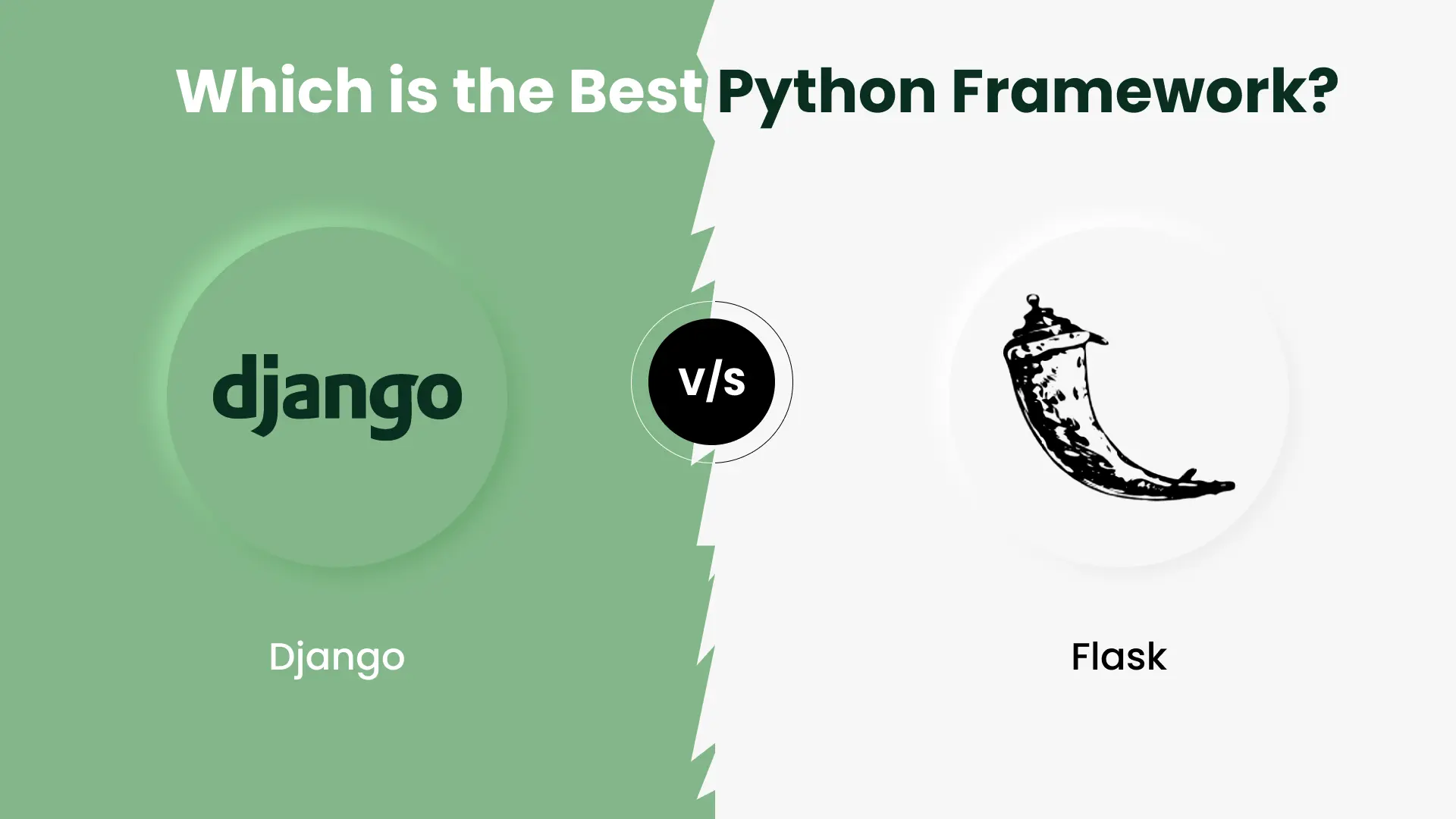



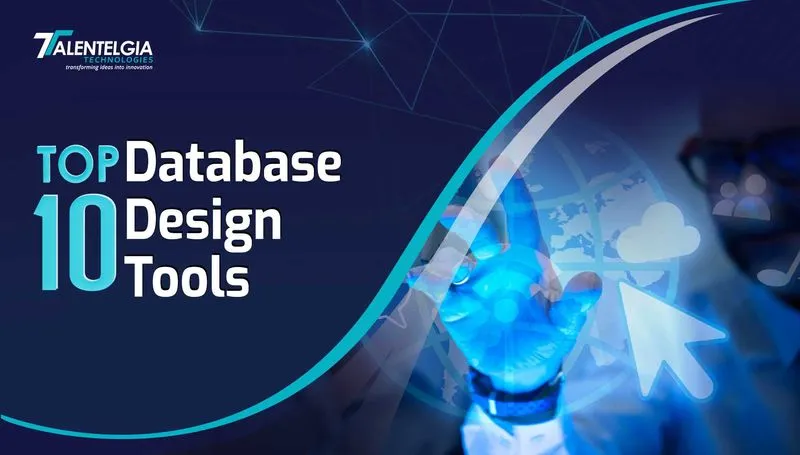
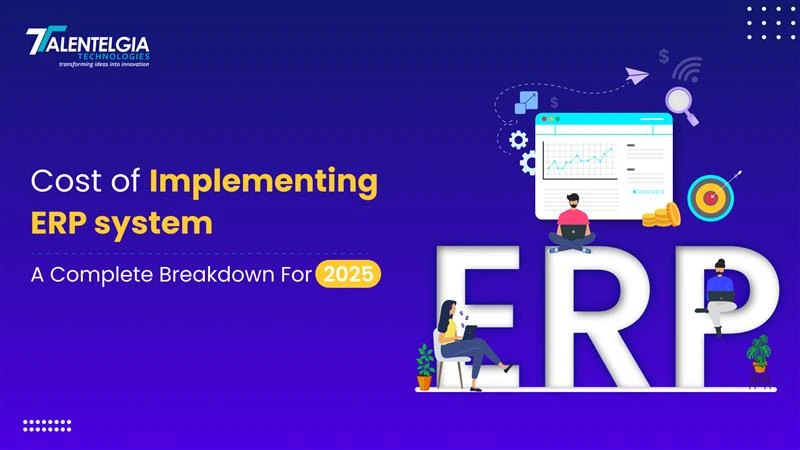











 Write us on:
Write us on:  Business queries:
Business queries:  HR:
HR: 




